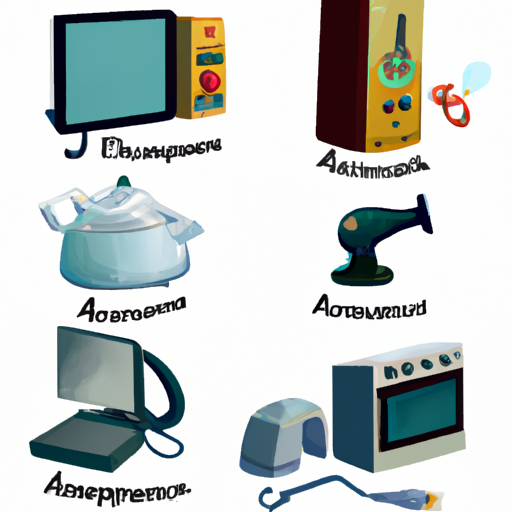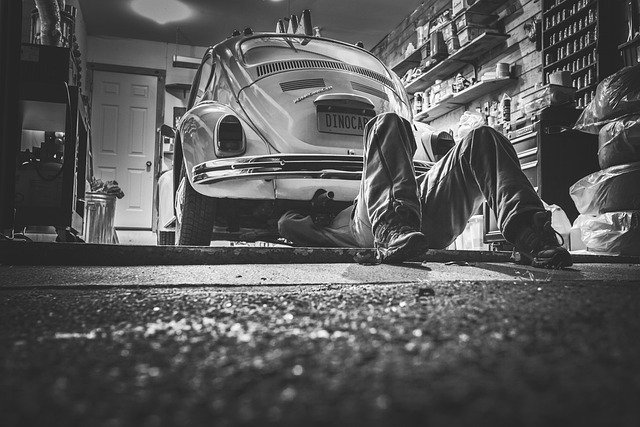This comprehensive guide provides in-depth knowledge about appliance repair. It equips readers with the necessary skills and tools to handle common problems with various household appliances. From refrigerators to washing machines, this guide covers it all. Ideal for DIY enthusiasts, homeowners, and even beginners who wish to understand and tackle appliance issues.
Understanding Your Appliance: Why is it important?
Having a solid understanding of how your appliances work is crucial for ensuring their longevity and optimal performance. By knowing the inner workings of your appliances, you can detect issues early on and prevent costly repairs or replacements. Understanding the basic components and functions of your appliances empowers you to troubleshoot minor problems on your own and potentially save time and money. Moreover, being knowledgeable about your appliances allows you to make informed decisions when it comes to maintenance and upgrades. Whether it’s your refrigerator, washing machine, dishwasher, or oven, each appliance has its own set of mechanisms that require specific care and attention. By taking the time to understand your appliances, you can extend their lifespan and maximize their efficiency, ultimately saving you from unnecessary stress and expenses.

A photo of different parts of a household appliance to showcase its complexity
Tools of the Trade: ‘The right tool for the right job’
Having the appropriate tools is essential when it comes to appliance repair. The old adage, ‘the right tool for the right job,’ holds true in this context. Investing in a quality set of tools specific to appliance repair can make all the difference in the outcome of your repair projects. From screwdrivers and wrenches to multimeters and voltage testers, having a well-equipped toolbox is key to effectively diagnosing and fixing appliance issues. Using the correct tools not only ensures a more efficient repair process but also reduces the risk of causing further damage to your appliances. Additionally, having the right tools on hand allows you to work more safely and with greater precision, leading to better overall results. Whether you are a seasoned DIY enthusiast or a novice attempting your first repair, having the right tools can significantly impact the success of your appliance repair endeavors.
Common Appliance Issues: Is your refrigerator not cooling or your washing machine not spinning?
When it comes to appliance repair, common issues can often be easily diagnosed and resolved with the right knowledge and tools. Understanding the most prevalent problems that can arise with household appliances is crucial for effectively addressing any malfunctions. Here are some common appliance issues that you may encounter:
- Refrigerator Not Cooling:
One of the most common problems with refrigerators is when they fail to maintain the proper temperature, resulting in food spoilage. This issue can be caused by a variety of factors, such as a malfunctioning thermostat, a faulty compressor, or a blocked condenser coil. By checking these components and performing basic troubleshooting steps, you can often identify the root cause of the cooling problem and take the necessary steps to rectify it. - Washing Machine Not Spinning:
Another frequent appliance issue is when a washing machine fails to spin during the cycle, leaving clothes soaking wet. This can be caused by an unbalanced load, a broken drive belt, or a malfunctioning motor coupling. By inspecting these components and running diagnostic tests, you can determine the source of the problem and make the necessary repairs. Additionally, ensuring that the machine is level and that the drainage system is clear can also help prevent spinning issues in the future.

An image of common household appliances exhibiting common issues
Safety First: ‘Better safe than sorry’, right?
When it comes to appliance repair, prioritizing safety is paramount. Working with electrical components and moving parts can pose serious risks if proper precautions are not taken. Before attempting any repairs, always ensure that the appliance is unplugged or disconnected from its power source to avoid the risk of electric shock. Additionally, wearing appropriate personal protective equipment, such as gloves and safety goggles, can help protect you from injuries while working.
Taking the time to read the appliance’s manual and familiarize yourself with its components and functions can also contribute to a safer repair process. Understanding how the appliance operates and where potential hazards may lie can help you navigate the repair task more effectively and minimize the risk of accidents. If you are unsure about a specific repair or lack the necessary expertise, it is always best to seek professional assistance to avoid compromising your safety.
Understanding how to repair common appliance issues not only saves you time and money, but it also equips you with essential skills that can come in handy in your home. This guide has provided you with the necessary knowledge and guidelines to tackle any appliance repair. Remember, safety is paramount, and if a problem seems too complex, don’t hesitate to call in the professionals.

